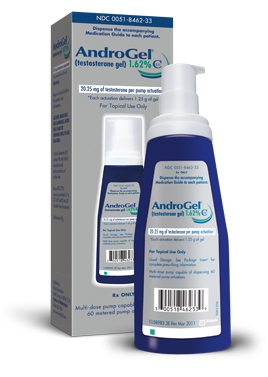FTC said today it will pursue litigation against AbbVie and Besins Healthcare, as well as Teva, over what it called “illegally blocking” consumer access to lower-cost versions of blockbuster testostrone treatment AndroGel.
The complaint alleges that AbbVie and Bangkok-based Besins filed “baseless” patent infringement lawsuits against Teva to delay AndroGel generics from coming to market. The lawsuit further alleges that Israeli drugmaker Teva then accepted an “illegal payment” from AbbVie to drop its patent challenge.
That illegal payment allegedly came not as a cash payment but in the form of allowing a copycat of Tricor, a therapy which treats high cholesterol and triglycerides. AbbVie, the suit claims, gave Teva permission to sell the authorized generic of the drug in exchange for Teva refraining from releasing its generic form of AndroGel, whose US sales reached $1.4 billion in 2013.
Teva declined to comment on the lawsuit. AbbVie did not respond to queries by press time.
“It’s not clear whether or not there is ‘compensation,'” Jay Lessler, a pharma patent attorney for the firm Blank Rome told MM&M, “and whether Teva would have not gotten [the Tricor] entry otherwise. In this AndroGel case, the FTC are not just saying, ‘We don’t like the settlement; you are paying to delay entry.’ They actually say that it was sham litigation in the first place. That’s another issue, and an issue that the FTC has not directly taken on before. It could have implications for how brand name companies carry out litigation properly.”
Indeed, FTC argues that what’s really at issue in the case is an ingredient in branded AndroGel, known as isopropyl myristate or IPM, which speeds the delivery of testosterone through the skin into the bloodstream. AbbVie’s patent only covers a formulation using IPM as a penetration enhancer. Both Teva and Perrigo reportedly developed t-gel products which did not contain IPM and used other penetration enhancers.
AbbVie and Besins had “no reasonable basis” to contend that either drugmaker’s penetration enhancers were equivalent to IPM, and both “surrendered any claim to those penetration enhancers in gaining approval for AndroGel from the Patent and Trademark Office,” FTC wrote.
Those two points led the commission to charge that AbbVie filed the patent infringement suit solely to trigger an automatic 30-month hold on FDA’s authority to approve either Teva or Perrigo’s formulations—and reap the profits in the meantime. Teva then asserted a counter-claim that the infringement “constituted sham litigation,” which it later abandoned to allegedly receive an authorized generic deal for Tricor.








